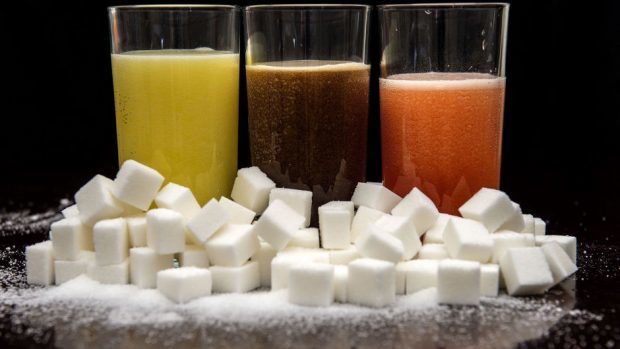Scotland’s “diet problem” has been underlined again by new figures confirming the nation spends more on fizzy drinks, chocolate and pastries than the rest of the UK.
Data from the Office for National Statistics sparked fresh calls for action last night after showing how much Scots spend on average on unhealthy products.
The research found the average Scottish household spends 90p a week on pastries, compared to an 80p UK-average, £2.10 on chocolate, compared to £1.90 south of the border, and £2.40 on soft drinks – almost 50p higher than England’s average.
Fresh vegetables, meanwhile, account for an average £3.20 weekly spend in Scotland, but £4.30 south of the border.
Average spending on “alcoholic drinks, tobacco and narcotics” was estimated at £13.40 in Scotland, while the UK’s weekly average was £11.80.
Diet expert Professor Julian Mercer, from Aberdeen Unversity’s Rowett Institute, said the figures confirmed the problem Scotland faces.
“I think the statistics in the report are what people would expect and I think it’s probably fairly widely accepted that the Scottish diet is worse overall than the UK,” he said.
“I think Scotland does have a diet and health problem.
“We’ve had Scottish dietary targets and we haven’t really made a great deal of impact on them. The problems are there and we need to address them.”
However Prof Mercer was hopeful that a proposed new Scottish Government strategy and recent action being taken by food and drink producers to reduce sugar content, such as Irn Bru, would help tackle the problem eventually.
“It has been fairly static but now there is a big drive, particularly by the Scottish Government, to address this,” he said.
“But I don’t think it’s going to be straightforward. There’s not going to be a magic bullet here, but changing a number of smaller things in the environment will hopefully add up to bigger changes.”
Across the UK, overall household spending increased by 4%in 2016-17, helped by low inflation and rising employment.
Household incomes grew by 2.3% over the same period, leading to lower savings and higher levels of household debt.
Stephen Clarke, policy analyst at the Resolution Foundation, said: “Today’s figures confirm that families largely shrugged off any immediate post-EU referendum jitters and went spending.
“This extra spending outpaced the extra level of income available to households, who turned instead to their savings and credit cards.
“More recently, rising prices and squeezed incomes have put the brakes on Britain’s big spending households.”
